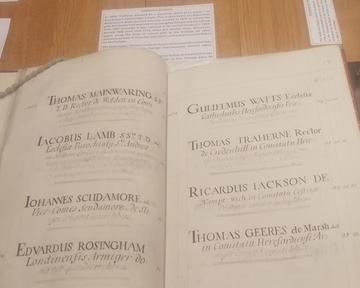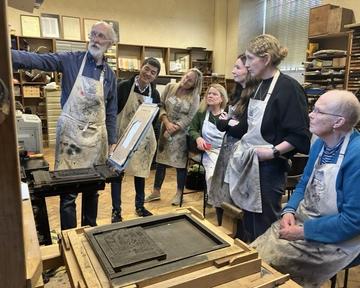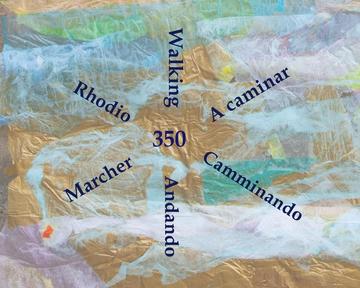Traherne 350 Events and Symposium October 2024

The 350th anniversary of Traherne’s death in the autumn of 1674 was commemorated in Oxford by a week of events from 20 to 25 October, organized by the Oxford Traherne edition in collaboration with Traherne’s college of Brasenose.
The wide-ranging events were intended to capture something of Traherne’s eclectic spirit, his multi-faceted interests, and his belief in the unlimited human potential to reflect the image of God. They included traditional choral evensong at Brasenose, with settings of Traherne’s words, and a sermon from Bishop David Thomson; a second choral evensong at Magdalen College, where the choir sang two recently commissioned settings of Traherne by the internationally-renowned composer Nico Muhly, ‘An Habitation of Thy Love’ and ‘On All Things’; a letterpress workshop at the Bodleian, where participants set and printed Traherne’s poem ‘These sweeter far than Lillies are’; and a creative translation workshop where we translated Traherne’s poem ‘Walking’ into a variety of languages.

The week ended with a celebratory event including mini-talks by Dr Julia Smith, Dr Sarah Apetrei, Dr Kathryn Murphy, and Roger Wagner, readings from Traherne’s works, music from Brasenose College Choir, and an exhibition in the library. Earlier in the year, students at Brasenose had participated in an art workshop led by Oxford artist Roger Wagner, at which they created three large, colourful collages inspired by Traherne’s writing, and these were on display throughout the week. The evening concluded with a social gathering, which would perhaps particularly have delighted the heart of Traherne, who described himself as ‘A lover of company; a delighter in equals’.
Perhaps the event which created the most enthusiasm has been the creative translation workshop. This was led by Dr Charlotte Ryland of The Queen’s College Translation Exchange, with contributions by Gwyneth Lewis, former National Poet of Wales, and Professor Ana Elena González-Treviño, who is translating Traherne’s Centuries of Meditations into Spanish. Having reflected with their help on some of the issues raised by translating a seventeenth-century poem, we worked collaboratively in groups on the first four stanzas of Traherne’s ‘Walking’, which we translated into eight languages, ranging from Bengali to Welsh. It was inspiring to see so many people of different linguistic backgrounds and skills working together in this way, but the afterlife of the workshop has been even more inspiring. In ways which we did not anticipate, participants have continued to work on translations after the workshop and to share them with us, and a Traherne colleague in North America has mirrored the event in the very different context of Northern Virginia Community College. Bilingual students there have also contributed their translations, in Arabic, Spanish, Dari, and Pashto, and they too have had the enthusiasm to work on them after the event.

In a time of increasingly polarized views and escalating international aggression, the workshop in its own way affirmed the value of international collaboration, and the power of literature to facilitate this. It also affirmed Traherne’s belief that ‘The Variety of Languages is a Marvellous Ornament and Beauty to the World’, and even more importantly that we ‘must be able to interpret Languages, before we can know the Wisdom and the Beauty of other Nations’.
Note: A booklet containing all the translations, illustrated by the Brasenose students’ artwork, can be downloaded here (PDF or Word). If you wish to print the booklet, download the Word version, and select the option to print on both sides of the paper and flip on the short edge. The printed booklet will be collated automatically, with a front and back cover.
A downloadable and printable poster of our Traherne 350 events can be found here:



